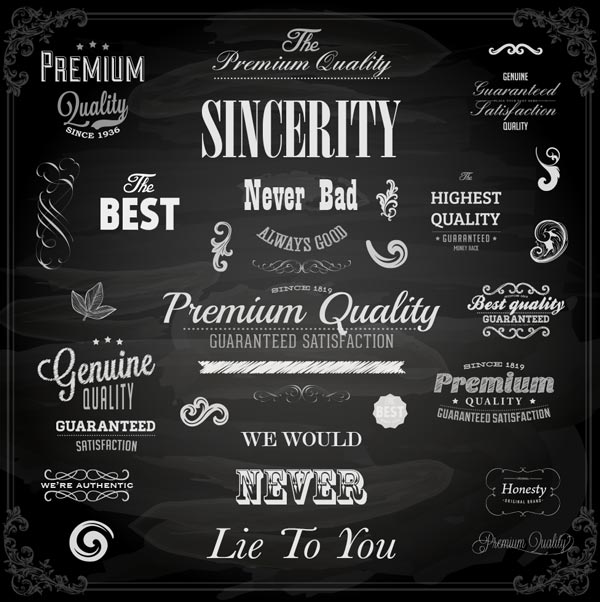How to prevent tone-deaf messaging from undermining your careful (and expensive) brand positioning
How can there be any sin in sincere? Where is the good in goodbye?
So begins one of the many charming and wry songs in Meredith Wilson’s The Music Man. The flowery expressions of sincerity that follow are about as insincere as you can get, and very funny. It’s not funny at all, however, when the pursuit of one business goal renders your expensive ad campaigns useless and makes it really hard for your customers to like you. Here are three very recent examples.
That, not if: Fox TV blows an apology
Yesterday, the Los Angeles Times reported that the L.A. Metro was removing ads that riders found racist and sexist. The ads were for a new television show called Red Band Society. As the Times reported,
The ads for the series that premiered this week show actress Octavia Spencer next to the words “Scary Bitch.” Metropolitan Transportation Authority spokesman Mark Littman said the agency decided to remove the ad because that label “denigrates women.”
It’s offensive, alright. It’s also inappropriate for a public transportation system, where, you know, children ride too.
There are errors in judgement up and down the supply chain here (Metro should have turned the ads back at the border), but what Fox TV did next wins the day for compounding awfulness with stupidity. They said this:
“We sincerely apologize if the copy was offensive to viewers.”
No, idiots! Not “if”! “That!” Say it like this: “We sincerely apologize that the copy was offensive to viewers.” Your viewers were offended; that’s why they were angry. It’s unambiguous. They told you. Saying “we apologize that the copy was offensive” acknowledges that you made a mistake, and you’re sorry.
Saying “we apologize if the copy was offensive” says something else entirely. It says, “Look, Viewing Audience, you’re too stupid or uptight to get how cool we are with this edgy ad campaign, but we’re pretending to apologize anyway because we have to.” It says, “We’re aware that you said you were offended, but we might not believe it, and even if we do, you’re wrong.” It says, “We want you to consume our products, but we don’t respect you.”
Your average surly teenager, on his worst day, knows that kind of backhanded apology isn’t going to fly. I don’t know why the adults at Fox TV thought it would.
How they could have avoided it:
Second: Issue a genuine apology. First: Recognize that those ads were a really bad idea, and do something else instead.
We can see you, IRL edition: Vons/Safeway’s clumsy deception
This summer, as most summers, the Los Angeles suburb where I live imposed brownouts on businesses to conserve energy. Most grocery stores handled the brownouts in the same way, by turning down the air conditioning. The stores were a little warmer, but otherwise the shopping experience was the same as usual.
Safeway (called Vons and Pavilions here in California) did something different: they kept the stores icy cold, but they turned off most of the lights. They gave their employees a patter to explain the darkness, positioning it as a “doing our bit” sacrifice on the part of Vons. “Better here than at your house!” they said.
So why is that wrong? Aside from its questionable efficacy — lighting generally takes less energy than air conditioning — it wouldn’t have been so bad, except that Vons didn’t dim the lights evenly throughout the store. They did it in a very specific hierarchy.
Fresh fruit and vegetables, milk, and other staples had no lights at all. The packaged goods in the center aisles were at about half their normal lighting. The five highest-profit areas of the store — meat, deli, floral, liquor, and premium bakery — were blazing as usual.
And because you can’t shop for groceries while in a coma, customers figured it out. I saw one manager turn beet-red when he overheard two women in the checkout line discussing the ob vious, cynically manipulative strategy. So much for Vons’ “Ingredients for life” tagline.
vious, cynically manipulative strategy. So much for Vons’ “Ingredients for life” tagline.
I can’t imagine that it was successful. All summer, I only went there when I forgot that the lights were off, then either left immediately or bought only a few things and finished my shopping elsewhere. I doubt I was the only one.
And while I’m sure the plan sounded brilliant in a conference room, I also doubt that many shoppers said, “I can’t see the lettuce. I’ll just go where the light is better and buy a fifth of Tequila instead.” In the meantime, the unfortunate store managers were left dealing with the financial and customer-relations fallout.
How they could have avoided it:
Have a meeting that included store managers, and put long-term customer retention and growth on the agenda. This idea screams silo decision-making, corporate dictates, and throwing a bone to stock holders for this quarter while ignoring the problems it might cause in the next. Had Vons put the right people in a room together with executives that are actually listening, and this never would have happened.
We can see you, Internet edition: Comcast’s & Time Warner’s baldfaced lie
Comcast and Time Warner are running commercials promoting the merger they both desperately want. “COMCAST + TIME WARNER CABLE,” they say. “TOGETHER IS BETTER.”
In these commercials, the very first promise they make is that they will “extend the protection of net neutrality rules to millions more people.” Just in case you miss the point the actor is making as he says this, the screen says EXTEND NET NEUTRALITY PROTECTION in gigantic blue letters. This is a baldfaced lie.
As explained on the merger website, their justification for this statement is that Comcast is currently bound by net neutrality rules, and Time Warner is not. After the merger, they say, Time Warner customers will also enjoy the protection of net neutrality.
Sure. For about a minute and a half, if these giants have their way, and maybe not that long. After that, nobody will have net neutrality. In fact, if it were not for Comcast, Time Warner, and the other large Internet service providers, net neutrality would not be in danger. The only reason we might lose it is that these companies have spent years and millions lobbying the FCC and Congress to abolish it.
It’s as if your evil cousin swore he’d help you keep your allowance safe, while he was furiously drilling a hole in your piggy bank.
How they could have avoided it:
Aside from telling the truth? Put a big sign up in whatever shiny corporate venue spawned this terrible ad idea. The sign should say this: “THE INTERNET = NOT INVISIBLE”. You can silo your legal teams and lobbyists. You can silo your mergers & acquisitions planners, your accountants, and your ad agencies. But in the age of the Internet, you can’t silo the public. Whatever you do, they’ll know about it.
To sum up, in the immortal words of Meredith Wilson,
How can there be any sin in sincere?
Where is the good in goodbye?
Your apprehensions confuse me dear
Puzzle and mystify
Tell me what can be fair in farewell, dear
While one single star shines above
How can there be any sin in sincere?
Aren’t we sincerely in love?
Get this right, or your customers will say goodbye — and good riddance.


